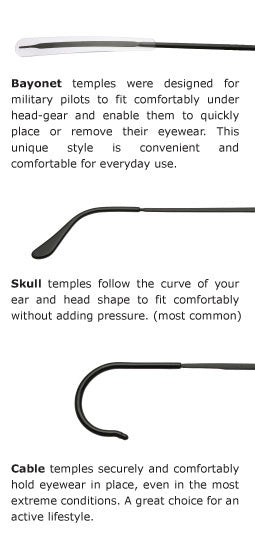What Is The Difference Between VLT and UV Blocking?
VLT and UV are two entirely different things, and the difference between them is very important. It can be confusing to us sometimes when we are looking for a new pair of sunglasses and we are concerned
UV radiation and our eyes. The lenses look pretty dark, and when we put them on we see that the light reaching our eyes is very dim. So we might think that the same thing happens to UV radiation, the only a small amount reaches our eyes. Wrong! This is why we need to know the difference between VLT and UV blocking.
VLT - Visible Light Transmittance
VLT stands for visible light transmittance. In other words, VLT tells us how much visible light is transmitted through a lens and reaches our eyes. The darker the lens tint the less visible light transmittance through the lens and reaching our eyes. For a good pair of sunglasses the ideal amount should be around 16-18%. In other words, the lenses should limit the amount of visible light reaching our eyes to around 17%. But does this protect our eyes from UV radiation?
UV Radiation
UV radiation, or ultraviolet light radiation, streams down from the sun at us all day long, regardless of whether it is cloudy or clear. Ultraviolet Light is invisible light which starts just above the colors we see in a rainbow.

Ultraviolet light is broken down into three different bands, UVA, UVB and UVC, depending upon the wavelength of the light. Of the three UVB is of the most concern. UVB rays are the ones that cause sunburn and will hurt our eyes. Most UVC radiation is absorbed by the atmosphere, while UVA and UVB radiation are responsible for things like tanning, skin aging and wrinkling as well as skin cancer.
Is VLT or UV More Important?
The truth is that both are important, but for different reasons.
Visible Light Transmittance, or VLT, tells us how much visible light will pass through a particular lens and reach our eyes. The more light that reaches our eyes the narrower our pupils will be, while the less light transmission through the lens the wider our pupils will be. So it is important that our pupils be narrow when we are exposed to a lot of sunlight outdoors. But we must also consider the amount of ultraviolet radiation (UV) that can reach our eyes because of the harm it can do. It is very important to understand how much of
UV radiation is absorbed by the sunglass lenses as well. Ideally we want the lenses to absorb 98-100% of harmful uv radiation. In addition the VLT of the sunglasses should allow approximately 17% of visible light to reach our eyes.
What Are The Best Values For VLT and UV Blocking?
While you can look at a pair of sunglasses and see how dark the lenses you still will not know the actual VLT number for the lenses. If you are purchasing a good pair of sunglasses the manufacturer or product listing should give you the VLT number for their sunglasses. Typically a value of around 18% would be good for a quality pair of sunglasses. UV blocking should also be a concern. Typically a good pair of sunglasses will block 98 to 100% of harmful UVA, UVB and UVC rays. For example, a pair of
Randolph Engineering Aviator sunglasses will have a VLT of 15-17% and will block 98-100% of all harmful UV radition.
Where Can You Find Quality Sunglasses?
Of course we offer a great selection of quality sunglasses with right here on our website at our
Sunglasses Store. Keep your eyes cool and protected today my friend!

 Ultraviolet light is broken down into three different bands, UVA, UVB and UVC, depending upon the wavelength of the light. Of the three UVB is of the most concern. UVB rays are the ones that cause sunburn and will hurt our eyes. Most UVC radiation is absorbed by the atmosphere, while UVA and UVB radiation are responsible for things like tanning, skin aging and wrinkling as well as skin cancer.
Ultraviolet light is broken down into three different bands, UVA, UVB and UVC, depending upon the wavelength of the light. Of the three UVB is of the most concern. UVB rays are the ones that cause sunburn and will hurt our eyes. Most UVC radiation is absorbed by the atmosphere, while UVA and UVB radiation are responsible for things like tanning, skin aging and wrinkling as well as skin cancer.





Leave a comment
This site is protected by hCaptcha and the hCaptcha Privacy Policy and Terms of Service apply.